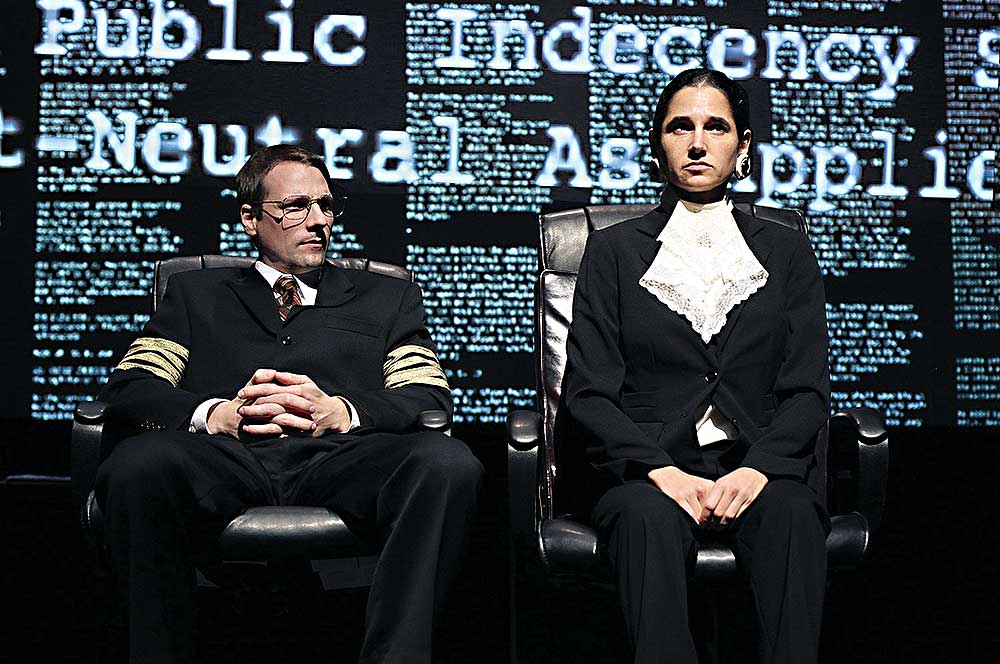NATIONWIDE: The U.S. Supreme Court has dead-serious business to discuss, year in and year out. But in 1991, when a gaggle of Indiana go-go dancers claimed in Barnes v. Glen Theatre that they had a First Amendment right to dance totally nude, despite a state law that said they couldn’t, the oral arguments got dicey.
“Under Indiana code,” an opposing attorney argued, “a person cannot leave his home naked and walk down the street…nor could he stand up in a bar or on a stage in a public establishment without his clothes on.”
Justice Antonin Scalia shot back, “He can evidently sing in an opera without his clothes on.”
Touché. Scalia’s interjection signaled the larger implications of the case, which wasn’t just about the validity of regulations calling for nude dancers to wear pasties and G-strings—it was about the definition of artistic expression. What’s the difference, Scalia wanted to know, between nude erotic dancing in the opera Salome and the same activity on the stage of the Kitty Kat Lounge?
That’s serious business, all right. But the landmark case’s oral arguments—as Elevator Repair Service artistic director John Collins discovered when he dug up the transcript—are marked by moments of wry absurdity and good, rollicking fun. Collins’s inspired idea was to turn the high court’s transcript into Arguendo, a verbatim staging (as is the company’s frequent practice) backed by animated text projects (by video artist Ben Rubin) and enacted by the ERS company playing a reimagined, robe-bedecked Supreme Court on rolling chairs. Bonus item: The courtroom proceedings are prefaced by an interview with a wide-eyed erotic dancer who shows up to listen and sets the press corps abuzz.
Arguendo (in Latin, “for the sake of argument”), which has had work-in-progress showings in Seattle, New York and Philadelphia, makes its official debut Sept. 10–Oct. 6 at NYC’s Public Theater, and goes on later in the season to several venues, including D.C.’s Woolly Mammoth Theatre Company (March 31–April 20) and Connecticut’s International Festival of Arts & Ideas (June 19–22).
What did the court decide? Arguendo gives both sides their due as it offers audiences a quick do-it-yourself education in the law—and some seriously brainy laughs.


